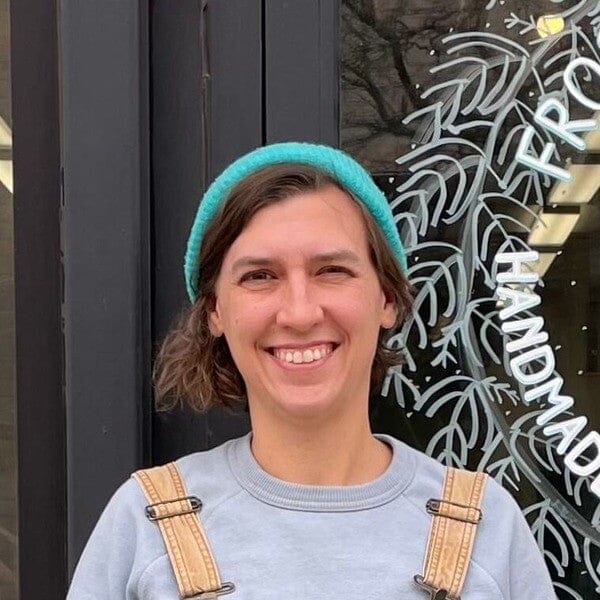5 Authors We’d Love to Take to Dinner
While we spend a lot of time thinking about our favorite novels and dreaming up sensational new book scents, we also can’t help but wonder about the people who write those novels so near and dear to our hearts. What are they like in person? What do they really think of these hundreds of pages they’ve put out into the world? And do they have any sage life advice they’d like to bestow upon us?
If we had it our way, we’d wave a magic wand and pop into a cozy restaurant for a candlelit dinner with some of the most fascinating names in literature. Our real list of dinner partners is a bit longer than the average blog post can handle, but here’s the shortlist of authors we’d love to share a meal with – we’ll make the reservation and everything! Just say you’ll come!
George R.R. Martin
We have so many questions we want to ask, sir. What’s it like to see your epic fantasy books gain an entirely new fan base and widespread cultural appeal after 20 years? What do you think of the show? And when, oh when are we getting The Winds of Winter?
We’ll try to keep our cool, of course, but we want to hear everything – even the parts we already know. One of our favorite tidbits is that R.R. Martin’s first stories were tales of monsters he wrote as a boy, which he then sold to other children for pennies. Talk about growing up to be what you dreamed of as a child! But it wasn’t a straight shot: R.R. Martin studied journalism and worked as a professor before eventually quitting to become a full-time writer. Is there a time limit on this dinner? Because we want to hear every delightful detail of his journey.
N.K. Jemisin
We’re pleased to present overwhelming and undeniable evidence that N.K. Jemisin is awesome: not only is she the only author (ever!) to win the Hugo Award for Best Novel three years in a row, but she’s also an inspiring public speaker, practiced psychology, and reviewed books for The New York Times. In terms of novels, her epics blend sci-fi and fantasy in a way that has absolutely no right to work – yet somehow sweeps us away every time. Okay, be still, our bookish hearts. We’d love to pick her brain about the role of science fiction and fantasy in today’s world, her favorite audiobooks, and the upcoming television adaptation of The Fifth Season.
Junot Díaz
We’ve recommended Díaz as the author to check out for books about the messy realities of love, but the truth is that his novels touch on just about everything it means to be human, to find your place in the world, and to grapple with the realities and expectations of culture and family. One of our favorites of his, The Brief Wondrous Life of Oscar Wao, features the titular character struggling with expectations from his family, his culture, and himself.
Díaz immigrated to the U.S. from the Dominican Republic when he was just six years old, and he credits his roots with influencing his novels and short stories. We could talk for hours with him about the role that others play in shaping our own perceptions of the world and of ourselves. And, of course, we’d ask him when he’ll be making the sci-fi debut he keeps promising.
Judy Blume
Our inner middle schoolers would leap at a chance to meet the author of classic coming-of-age stories like Are You There God? It’s Me, Margaret, and our adult selves feel the same about this Library of Congress Living Legend (is that the coolest title you’ve ever heard, or what?). Blume was writing about topics that matter to preteens and teens at a time when the overwhelming societal opinion was that those things did not, in fact, matter. Her 90-plus literary awards beg to differ. We’re eager for insight into her writing process, her titling troubles (Summer Sisters had 20 different potential titles!), and her experiences with her own books being challenged and banned from schools for their subject matter.
Haruki Murakami
We’ve shed many a tear over a plot point, but Haruki Murakami’s Norwegian Wood made us weep like no other. His prose is gorgeous, his storylines are heartfelt, and his characters have a kind of dreamy courage that makes us want to follow them to the ends of their worlds and beyond. But the charming detail that really gets us? When asked about the significance of the cats that frequently appear in his works, Murakami didn’t have some kind of deep, revealing metaphor to share – he writes cats into his stories because he likes them! We’re glad to be in on the revelation, but we can’t help but think that some high school literature class will soon be debating what, exactly, the fuzzy felines mean in the context of the work. Either way, we want to hear all about his experiences writing in both English and Japanese, as well as that time that he was at a baseball game and thought, “Perhaps I too can write a novel.”








